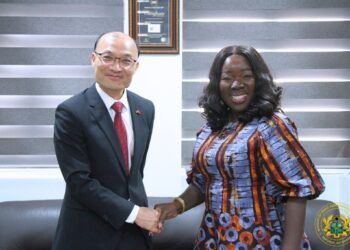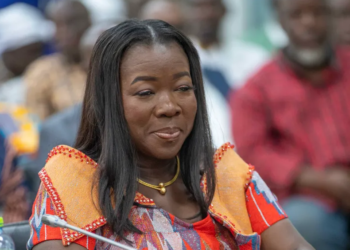The Importers and Exporters Association of Ghana (IEAG) has lauded the Bank of Ghana (BoG) for its bold and strategic decision to inject US$1.15 billion into the foreign exchange market under the Domestic Gold Purchase Programme.
The intervention, which comes at a time of mounting concerns over currency volatility and liquidity challenges, has been described by the IEAG as a “game-changer” for the trade and maritime sectors.
In a statement signed by Mr. Samson Asaki Awingobit, the Executive Secretary of the Association, the IEAG expressed deep appreciation to the central bank for the decisive move, noting that it would not only strengthen Ghana’s foreign reserves but also enhance forex liquidity, which is critical to import and export operations.
Stabilizing the Cedi and Restoring Confidence
For years, importers and exporters have been plagued by high exchange rate volatility, which has often disrupted trade flows and raised the cost of doing business. The constant depreciation of the cedi against major trading currencies, particularly the US dollar, has inflated import costs and created uncertainty in international transactions.
However, according to the IEAG, the situation has seen a remarkable turnaround this year. “The cedi has appreciated by more than 20 percent against the dollar since January 2025, which we welcome, and we expect the central bank to sustain it,” the statement said.
The group believes that the BoG’s forex injection will further stabilize the cedi, promote predictability in pricing, and enhance investor and business confidence. By ensuring consistent forex supply, importers can plan their operations better, while exporters can execute contracts without fear of sudden exchange rate losses.

Enhancing Forex Liquidity for Seamless Trade
The IEAG highlighted that one of the most immediate benefits of the BoG’s move would be improved forex liquidity. This, it said, would guarantee timely access to foreign exchange for businesses engaged in international trade transactions.
“The availability of forex is essential for sustaining trade flows, especially for importers who need to make timely payments for goods in transit,” the statement explained. It added that greater liquidity would also benefit exporters, who often require foreign currency for shipping logistics and equipment procurement.
By increasing liquidity, the intervention would reduce demurrage charges and shipping delays that often occur due to forex shortages at the ports. This improvement is expected to cut operational costs significantly and enhance the competitiveness of Ghanaian businesses in the global marketplace.
The IEAG noted that the BoG’s $1.15 billion forex injection would not only stabilize trade operations but also act as a catalyst for investor confidence. With greater stability in the exchange rate, international investors and trade partners would be more willing to engage in long-term financing, trade partnerships, and expansion projects within Ghana’s logistics and maritime value chain.
“The intervention will attract long-term financing and encourage sustainable trade partnerships,” the IEAG emphasized. This renewed confidence, the association believes, would support Ghana’s broader goal of positioning itself as a regional trade and logistics hub under the African Continental Free Trade Area (AfCFTA).
IEAG
Supporting SMEs and Agribusinesses for Export-Led Growth
In addition to commending the forex injection, the IEAG applauded the BoG’s call to commercial banks to expand financial support to SMEs and agribusinesses, which are vital to Ghana’s export-led economic growth. According to the Association, the move to promote export-oriented financial products and insurance coverage for imports will help retain more foreign exchange within the local economy.
“SMEs and agribusinesses remain the backbone of Ghana’s export diversification strategy. By supporting their access to finance, we can grow exports, reduce dependence on imports, and strengthen the cedi’s long-term outlook.”
IEAG
The IEAG further called on financial institutions to design innovative trade finance products tailored to the needs of small and medium enterprises, which often face barriers to accessing foreign exchange for their operations.
The Association described the BoG’s forex intervention as long overdue, noting that it reflects a pragmatic shift toward sustainable economic management. By linking the intervention to the Domestic Gold Purchase Programme, the central bank is utilizing Ghana’s gold reserves to strengthen the cedi—an approach that reduces external borrowing and preserves national reserves.
“The BoG’s approach will set Ghana’s economy on a more sustainable path, particularly in strengthening trade flows at the ports and safeguarding the interests of businesses operating in the maritime sector.”
IEAG
The association added that the initiative aligns with the government’s broader efforts to build a resilient and self-sustaining economy, capable of withstanding external shocks such as commodity price fluctuations and global currency pressures.
TheImporters and Exporters Association of Ghana reiterated its unwavering support for the Bank of Ghana’s initiative and pledged to collaborate with the central bank and other stakeholders to ensure the successful implementation of the forex intervention. “The IEAG stands ready to work closely with the Bank of Ghana, commercial banks, and relevant ministries to ensure this policy delivers tangible results for the trade community,” the statement concluded.
READ ALSO: Mahama Administration to Base Recruitment on National Needs























